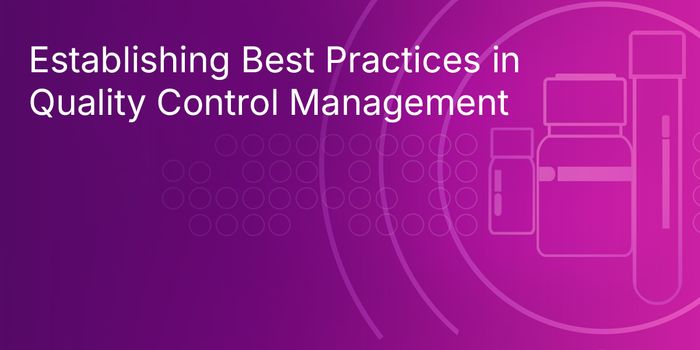Every Minute Counts: Opportunities for Faster Blood Culture Results
Sepsis is one of the most significant challenges in critical care, and early diagnosis is a decisive factor in determining patient outcomes. Sepsis is a medical emergency, and it is the leading cause of death in hospitals,1 with an estimated 1.7 million adults in the United States developing sepsis each year.2 In patients with septic shock, mortality has been shown to increase by 7.6% for every hour delay of initiation of appropriate antibiotics.3
A blood culture is a critical step in the management of sepsis, and a positive blood culture either establishes or confirms that there is an infectious etiology for the patient’s illness.4 In addition, a positive blood culture provides the etiologic agent for antimicrobial susceptibility testing, enabling optimization of antimicrobial therapy.4 With definitive microorganism identification sometimes taking several days, clinicians and laboratory professionals need solutions that will provide the fastest results possible to put time back on the side of patients with bloodstream infections.
The Next Dimension in Blood Culture Detection
As Joel Mortensen, Ph.D., Director of Infectious Diseases Testing Laboratory at Cincinnati Children’s Hospital, explains, “Our goal is to collect a sample with our clinicians from a patient using the very best technologies that we can, and to get that data back to the clinician as fast as possible so that they can treat a patient.” Receiving faster, actionable blood culture results is a priority not just for the laboratory, but for patients and the entire clinical team. Providing adequate antibiotic therapy within the first 24-48 hours leads to:5-9
- Decreased infection-related mortality (20-30%)
- Earlier recovery and shorter length of hospital stay
- Less risk of adverse effects
- Reduced risk of antimicrobial resistance
- Cost reduction (length of stay, therapy, and diagnostic testing)
To create a blood culture system that would automate many of the previously manual, time-consuming steps of blood culture p, bioMérieux developed the BACT/ALERT® VIRTUO®, the first fully-automated blood culture system. The VIRTUO system automates blood culture bottle loading and unloading, as well as blood volume measurement for adult bottles. These automated capabilities make it easier and faster for laboratory staff to load blood culture bottles with patient samples to begin the incubation process. Combined with its automated features, VIRTUO is designed with proprietary algorithms that enable fast and accurate microorganism detection.
Faster Results for an Impact on Patient Care
When every minute counts for patients with possible bloodstream infections, faster time to results is critical for providing the best patient care possible. A recent study in the Journal of Clinical Microbiology found that the VIRTUO system provided 20% faster time to results on average than a conventional blood culture system, with some organisms being detected up to 11 hours faster using VIRTUO.10
In describing his personal experience with VIRTUO, Dr. Mortensen of Cincinnati Children’s Hospital observed, “We get faster results. We run 24 hours, 7 days a week, and we’ve been able to slice off consistently several hours,” in the time between when they load bottles into VIRTUO and when results are available. He continued, “It’s allowed us to have a clear impact that’s been recognized by the pharmacists, and by Antimicrobial Stewardship, and our frontline clinical medical staff.”
Clinical evidence shows that nearly three-quarters of clinically significant microorganisms typically are detected on the first day of blood culture bottle incubation.11 With the opportunity to obtain patient results many hours faster using VIRTUO as well as the workflow benefits of a fully-automated system, hundreds of innovative facilities across the United States have implemented VIRTUO to automate and improve their blood culture processes.
About bioMérieux
A global leader in in vitro diagnostics for more than 55 years, bioMérieux has always been driven by a pioneering spirit and unrelenting commitment to improve public health worldwide. bioMérieux is present in 44 countries and serves more than 160 countries with the support of a large network of distributors. bioMérieux provides diagnostic solutions that improve patient health and ensure consumer safety.
To learn more about the BACT/ALERT VIRTUO system, visit our website or contact CustomerDelight@biomerieux.com.
References
- Sepsis Fact Sheet. Sepsis Alliance. https://www.sepsis.org/education/resources/fact-sheets/. Published 2020.
- Data & Reports. Centers for Disease Control and Prevention. https://www.cdc.gov/sepsis/clinicaltools/index.html.
- Kumar A et al. Duration of hypotension before initiation of effective antimicrobial therapy is the critical determinant of survival in human septic shock. Crit Care Med. 2006 Jun;34(6):1589-96. doi: 10.1097/01.CCM.0000217961.75225.E9.
- Principles and procedures for Blood Cultures; Approved Guideline, CLSI document M47-A. Clinical and Laboratory Standards Institute (CLSI); Wayne, PA. 2007
- Kollef MH, Sherman G, Ward S, Fraser VJ. Inadequate antimicrobial treatment of infections: a risk factor for hospital mortality among critically ill patients. Chest. 1999 Feb;115(2):462-74. doi: 10.1378/chest.115.2.462. PMID: 10027448.
- Harbarth S, Garbino J, Pugin J, Romand JA, Lew D, Pittet D. Inappropriate initial antimicrobial therapy and its effect on survival in a clinical trial of immunomodulating therapy for severe sepsis. Am J Med. 2003 Nov;115(7):529-35. doi: 10.1016/j.amjmed.2003.07.005.
- Lodise TP, McKinnon PS, Swiderski L, Rybak MJ. Outcomes analysis of delayed antibiotic treatment for hospital-acquired Staphylococcus aureus bacteremia. Clin Infect Dis. 2003 Jun 1;36(11):1418-23. doi: 10.1086/375057. Epub 2003 May 20. PMID: 12766837.
- Kang CI, Kim SH, Kim HB, Park SW, Choe YJ, Oh MD, Kim EC, Choe KW. Pseudomonas aeruginosa bacteremia: risk factors for mortality and influence of delayed receipt of effective antimicrobial therapy on clinical outcome. Clin Infect Dis. 2003 Sep 15;37(6):745-51. doi: 10.1086/377200.
- Forrest GN, Mankes K, Jabra-Rizk MA, et al. Peptide nucleic acid fluorescence in situ hybridization-based identification of Candida albicans and its impact on mortality and antifungal therapy costs. J Clin Microbiol. 2006;44(9):3381-3383. doi:10.1128/JCM.00751-06
- Altun O, Almuhayawi M, Lüthje P, Taha R, Ullberg M, Özenci V. Controlled Evaluation of the New BacT/Alert Virtuo Blood Culture System for Detection and Time to Detection of Bacteria and Yeasts. J Clin Microbiol. 2016;54(4):1148-1151. doi:10.1128/JCM.03362-15.
- Bourbeau PP, Foltzer M. Routine incubation of BACT/ALERT FA and FN blood culture for more than 3 days may not be necessary. J Clin Microbiol. 2005;43:2506-2509.










